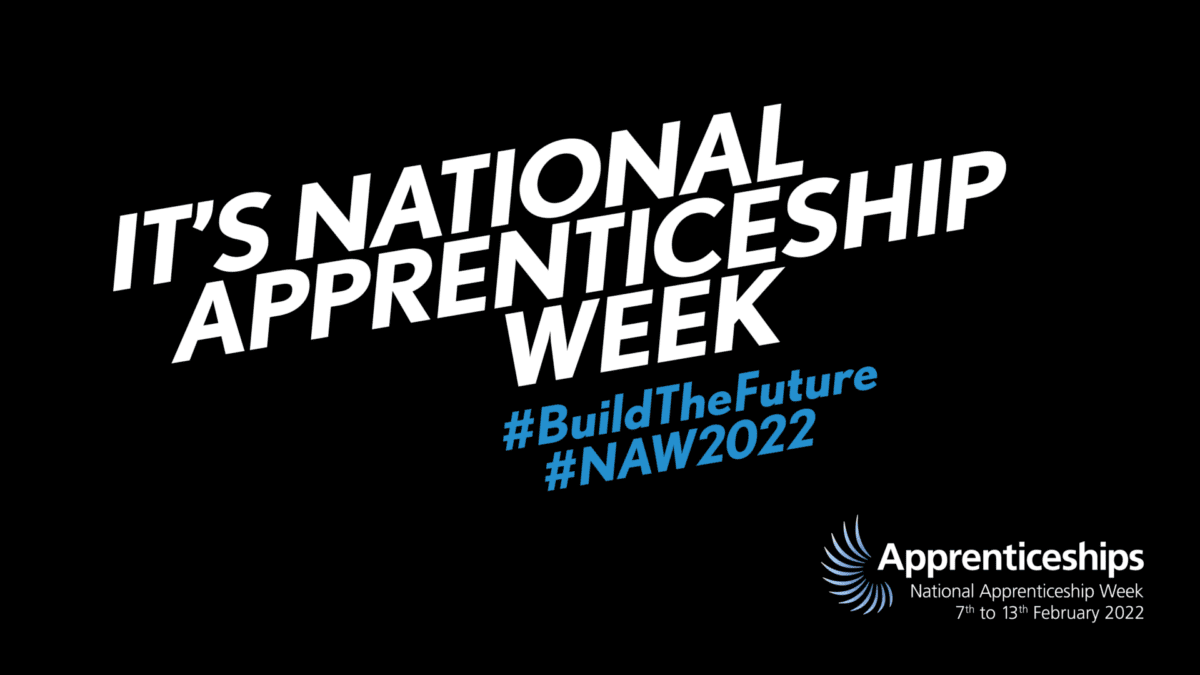National Apprenticeship Week: What does the future hold for the workforce of tomorrow?

An apprenticeship is arguably not the traditional path to follow for further education. The majority of school leavers sit their A-Levels, go to university and an increasing number are also pursuing post-graduate qualifications. With only 6% of students saying they consider it easy to find information on apprenticeships, the uneven balance between the two paths is unsurprising.
National Apprenticeship Week was established 15 years ago to celebrate apprenticeships and shine a light on the opportunities they offer. But what is in store for the next generation of apprentices amidst the Great Resignation, an ongoing skills gap and budget cuts? In honour of National Apprenticeship Week, FE News spoke to four industry experts about the future of apprenticeships and why businesses should be investing in the workforce of tomorrow.
Business benefits
It is widely acknowledged that apprenticeships offer a great opportunity for young people looking to start a career or older employees wanting to reskill, but many often overlook the benefits that it can bring to businesses as well.
“Hiring new apprentices into the business is a win-win situation for everyone,” states Sadie Wilde, Leadership and Talent Development Partner at Node4.
“The apprenticeship provides emerging talent the opportunity to learn new skills on the job, gain nationally-recognised qualifications and gain entry to a long term career with us. As a business, we have also benefited from a talent pool of enthusiastic, fresh-faced individuals who have become valuable members of the Node4 team. Our colleagues across the business also love getting involved in supporting the development of our new apprentices on our emerging talent programmes.
“We also utilise apprenticeships to develop our people to achieve their career goals and to plug any skills gaps that we potentially have in the business. We’re passionate about supporting our colleagues to enhance their career prospects through gaining qualifications and an apprenticeship is a great way to build their skills and knowledge.”
Gillian Mahon, Chief People and Places Officer at Totalmobile agrees that apprenticeships don’t only help the person on the scheme,
“they’re also a great way to tackle the recruitment challenges that we’re currently seeing in our industry. It can be difficult for people without experience to secure jobs in tech – sometimes simply because they don’t feel confident enough in their own ability to apply. Apprenticeships provide that stepping stone where the person learns the job while being paid to train, and the company has the chance to train a potential future employee. It’s a win-win situation.”
HR hurdles
Recruiting and retaining apprentices is a very different experience from hiring other more experienced candidates.
As Ian Rawlings, RVP EMEA at SumTotal, explains:
“Finding and securing suitable candidates for apprenticeships will require HR teams to shift their hiring strategy – looking beyond the bullet points on a CV to evaluate potential over experience.
“It is fundamental that employers prioritise finding individuals who are willing to learn and adapt. After all, one of the many benefits of apprenticeship schemes is that organisations can tailor the training that prospective employees receive with a view of keeping them within the business after they complete their scheme. Significantly, 86% of employers surveyed by the Government Apprenticeship scheme said apprenticeships helped them develop skills relevant to their organisation. This means, by the time they qualify, the apprentices will be well versed in the company’s systems, technology and culture, allowing them to hit the ground running in a permanent role.”
He continues: “The theme of this year’s National Apprenticeship Week, Build the Future, highlights this crucial role apprenticeship schemes play in future-proofing the workforce. As the ‘Great Resignation’ rages on, organisations need to push ahead with their reskilling efforts to help defend against the ongoing talent crisis. Critically assessing the future demand for skills and understanding the patterns and obstacles that may affect workforce migration to new skill sets will enable HR teams to best utilise and progress their workforce, from apprentices to senior management, ensuring they stay one step ahead as the war for talent intensifies.”
The future of apprenticeships
The youth of today have had a difficult couple of years as the COVID pandemic has brought disruption to their education and the challenge of beginning their careers in a hybrid working environment. As government funds get cut, reducing the incentives for businesses to offer apprenticeships, the momentum for such opportunities should not be left to dwindle.
Hugh Scantlebury, Founder and CEO at Aqilla shares his insight:
“From our work with Young Citizens, we know all too well that young people long to engage with society and be an active part of their community. This eagerness should be encouraged and utilised by organisations. The theme of this year’s National Apprenticeship Week is ‘build the future’ and that is exactly what businesses that invest in the next generation are doing. As the £3,000 employee incentive for apprenticeships came to an end last week, we must ensure that we are still giving the youth of today a leg up to achieve their potential. After all, they are the key to filling the ongoing skills gap and apprenticeships are a prime way to pass on these valuable skills.”
Looking to the future, apprenticeships can help to stimulate the economy as it recovers from the pandemic. With the ongoing skills gap, apprenticeships are the perfect way to train candidates in the skills that are lacking. Businesses shouldn’t be discouraged by the reduction of government funding for apprenticeships – you can still reap the benefits of ‘growing your own’ talent and investing in the next generation.










Responses